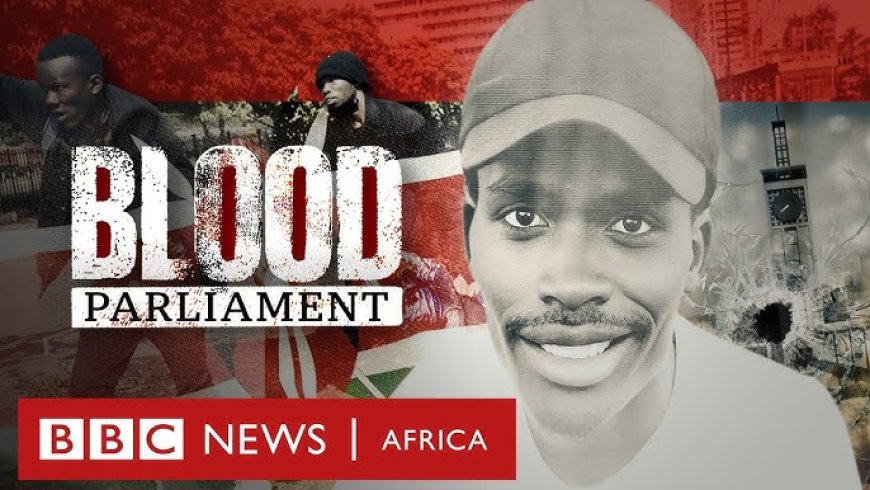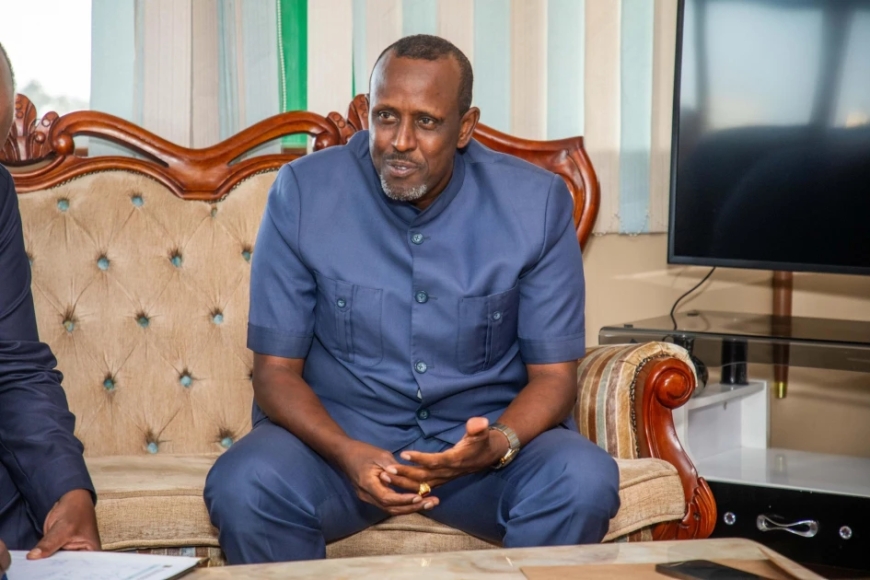MP Forced To Clarify 'We Sympathise & Move On' Remarks On BBC 'Blood Parliament' Documentary
The remarks, captured in clips which spread rapidly online, involved him speaking about the BBC documentary Blood Parliament

Mandera North MP Bashir Abdullahi has responded after his remarks made in Parliament on Tuesday, April 29, went viral, drawing backlash from many Kenyans.
The remarks, captured in clips which spread rapidly online, involved him speaking about the BBC documentary Blood Parliament, which identified two police officers and a Kenya Defence Forces (KDF) soldier suspected to be involved in the June 25, 2024, killings of protesters outside Parliament.
His comments sparked widespread public outrage, as many Kenyans online accused MPs of trying to downplay the June 25 tragedy instead of demanding justice for the victims’ families.
“A very sad day indeed, tragic and shameful. Tragic in the sense that we lost the lives of our fellow Kenyans, shameful in the sense that the democracy of our Parliament was about to be infringed and nevertheless, it has come at this time, a time that we have really moved on,” he said.

Mandera North MP Bashir Abdullahi. /CITIZEN DIGITAL
“We spoke about that issue in this house, discussed it, sympathised and mourned our fellow Kenyans who passed on during that day. However, it has come at this time again when, as much as we agree that our fellow Kenyans lost their lives, unfortunately, we also moved on to ensure that we reconcile the country as we move on. It happens the world over, people are killed, we sympathise, and we move on."
The remarks angered many Kenyans online, with many feeling that leaders were trying to sweep the killings under the rug instead of standing up for justice on behalf of the victims and their families.
In response to the backlash, MP Bashir took to his X account on May 1 to clarify his stance, arguing that his comments were misunderstood and taken out of context.
“Fellow Kenyans, over the past few days, I have observed with concern the public reaction to a phrase attributed to me during a recent Parliamentary session—‘we sympathise and move on.’ While the phrase has gone viral, it has unfortunately been taken out of context and does not reflect the intent or spirit of my remarks," he noted.
"Let me set the record straight. I was present in Parliament on that solemn day when we unanimously condemned the tragic events of 25th June 2024, when innocent Kenyan youth lost their lives during the anti-Finance Bill. We mourned as a House and stood with the affected families. At no point did I mean to ignore or downplay the pain of what happened."
He urged that those behind the killings be held accountable and apologised to anyone who was hurt by his remarks.
“I demand that those responsible be held accountable. If my words hurt the families or any Kenyan, I offer my deepest and most sincere apology. I say this as a servant of the people," he added.
The situation has reignited discussions about how leaders respond to incidents of police and military violence—and how often they rush to urge Kenyans to "move on" without securing justice first.
Bashir was not the only one whose remarks rattled members of the public. On the same day, Dagoretti South MP John Kiarie claimed that the BBC was attempting to enforce the British agenda in Kenya.
The MP alleged that the documentary was part of a scheme to pressure Kenya into dropping Parliament’s requirement that British Army soldiers accused of crimes on Kenyan soil be prosecuted locally.
He is yet to issue an apology or clarification on the remarks.
The BBC is funded by taxpayers’ money in Britain, meaning that BBC is funded to push the foreign agenda of the British people internationally- MP John Kiarie#ViralVideos pic.twitter.com/Hmv7UGZPom — Viral Tea Ke (@ViralTeaKe) April 29, 2025






